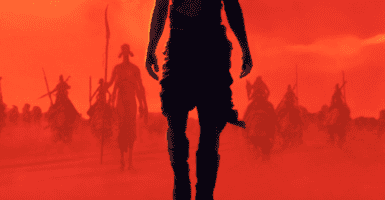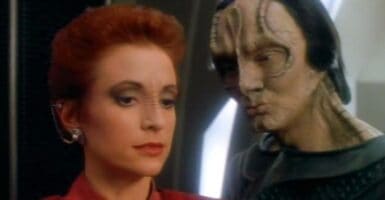Battleship Director Blames Lack Of Big Star For The Movie’s Failure
This article is more than 2 years old
 Remember Battleship? Yes, the film adaptation of the widely popular board game of the same name [but with aliens, for some reason – Ed.]. About a year ago, the science fiction movie was hoping to capture a bit of that Transformers box office and become one of the biggest hits of the summer. Audiences had other plans: not watching Battleship. The film tanked at the box office, grossing only $65.4 million domestically, against a $209 million production budget. (The film did much better overseas, bringing in $301 million worldwide.) Director Peter Berg’s previous film, Hancock, grossed $624.3 million worldwide, in spite of negative reviews. So why did Battleship fail to bring in American audiences?
Remember Battleship? Yes, the film adaptation of the widely popular board game of the same name [but with aliens, for some reason – Ed.]. About a year ago, the science fiction movie was hoping to capture a bit of that Transformers box office and become one of the biggest hits of the summer. Audiences had other plans: not watching Battleship. The film tanked at the box office, grossing only $65.4 million domestically, against a $209 million production budget. (The film did much better overseas, bringing in $301 million worldwide.) Director Peter Berg’s previous film, Hancock, grossed $624.3 million worldwide, in spite of negative reviews. So why did Battleship fail to bring in American audiences?
According to Berg, it had nothing to do with the quality of the film, but rather that it didn’t star a recognizable and bankable movie star like Hancock‘s Will Smith. Berg believes that if Battleship had starred a bigger name, it would’ve been a more successful movie. Berg told the New York Times:
I got a taste of a film’s global power [with Hancock]. But I discounted the effect of Will Smith on Hancock’s success. I thought I could pull off Battleship without a big star … I don’t want to tackle that kind of economic project for quite a while.
Sure, Peter Berg. Keep telling yourself that. To be fair, there were a number of factors that went into Battleship‘s disappointing box office performance. It was released two weeks after Marvel’s The Avengers. For most summer blockbusters, that timing wouldn’t have mattered, but The Avengers was not a typical summer blockbuster. Audiences flocked to The Avengers for the second or third time instead of dropping their cash on Battleship. In fact, almost every movie released in May 2012 was a box office disappointment, including Dark Shadows, The Dictator, and the aforementioned Battleship. Only Men in Black III (starring Will Smith) was a moderate box office success, taking in $54.5 million in its opening weekend.
Battleship was also a very silly concept. While many people are familiar with the board game, the title and the concept of naval warfare were pretty much the only recognizable elements in the movie. It’s not like Battleship the game has much to offer when it comes to characters or story. [Or aliens. – Ed.]
Lastly, Battleship was a very, very bad movie. Earning a negative response from critics and general audiences alike, it seemed like no one was interested in watching the movie. All of the promotional materials looked bad, the story was silly and convoluted, and the acting was terrible. Brooklyn Decker and Rihanna are very beautiful women, but by no means are they good at the art of acting. Taylor Kitsch might have been a proven actor on the TV series Friday Night Lights, but he was in no way capable of carrying an entire movie on his broad shoulders.
A few months before Battleship was released, Kitsch also starred in Disney’s John Carter, which was also a big box office bomb. A few months after the release of Battleship, Kitsch co-starred in Oliver Stone’s Savages, which was also a box office disappointment. General audiences didn’t seem interested in anything that involved Taylor Kitsch in 2012.
Battleship was just one of those movies that didn’t look like it was going to be any good, and when it was released, those notions were confirmed. While Peter Berg claimed that the film was a parody of the dumb summer blockbuster action genre, it sure came off as an entry into the genre rather than a satire of it. “Mahalo, motherfucker!” (Also, shouldn’t it be “Aloha, motherfucker!?” “Mahola” means “Thank You,” and “Aloha” means “Goodbye” in Hawaiian).












